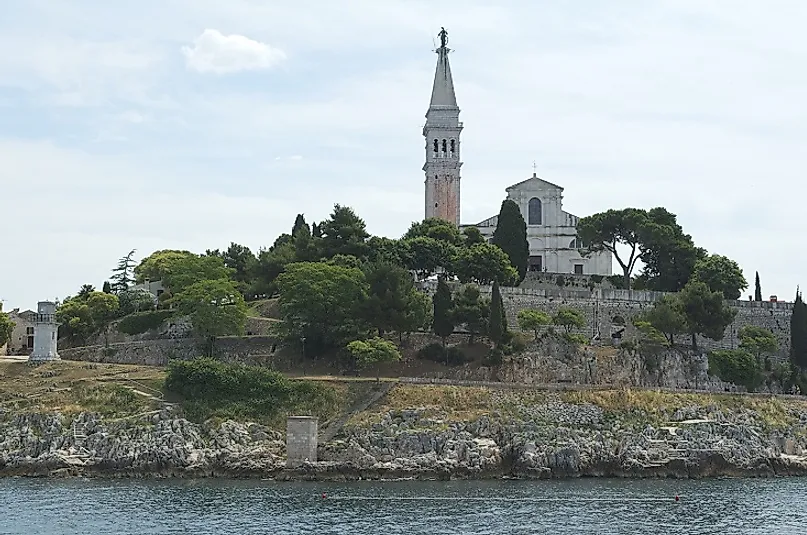Religious Beliefs In Croatia

Although religion was stifled during their time under the Communist regime of Yugoslavia, Croatians celebrated their independence with a resurgence of the religious fervor that had filled the country during its pre-communist days. The country's monasteries and churches, many of them celebrated historical monuments, are once again in use by Croatia's thriving Christian population. Public holidays to celebrate Catholic religious festivals such as Epiphany, Easter Monday, Corpus Christi Day, Assumption Day, All Saints' Day, Christmas, and St. Stephen's Day have been resumed, and citizens of other faiths have the legal right to celebrate their own major religious holidays as well.
The constitution of Croatia defines all religious communities as equal by law and separate from the state, and the country has no official religion. Religion classes are offered widely in public schools, but attendance is not mandatory. Christianity is the dominant religion in Croatia, with 91% of citizens identifying as Roman Catholic, Eastern Orthodox, or Protestant Christians. Only a small percentage of Croatians have other beliefs, the most prominent being Islam, and the rest identify as Atheist, Agnostic or non-religious.
Christianity in Croatia
An estimated 3.7 million baptized Roman Catholic Christians represent 86.3% of the Croatia's population. 4.4% of Croatians identify as Eastern Orthodox, represented by three major churches. These are the Serbian Orthodox, Bulgarian Orthodox, and Macedonian Orthodox. Most of these worshipers follow the religious traditions of their ancestral ethnic groups. Protestant Christianity did not establish a presence in Croatia until the 1950s, and because of this, a token 0.3% of Croatia's population identify as Protestant Christians.
Christianity has been a part of life in what is now Croatia since long before the Croat people arrived in the region. During the early part of the Seventh Century AD, ethnic Croats encountered Christian natives to the region and began to peacefully accept Christianity over the next two hundred years. The Catholic Church and its clergy played an important role in Croatian society, education and culture until the country came under Soviet rule. Between 1945 and 1952, many priests were shot or imprisoned, and religions of all types were repressed. After the fall of Communism, the church slowly started to regain its prominent role in Croatian culture.
Catholic influences can be seen in every Croatian community, with the most audible being the church bells which are found in even the smallest of villages. Sanctuaries devoted to "Gospa", or the "Blessed Virgin", can be found throughout the country, and every village and town has a patron saint, whose feast day is often celebrated with a procession, church ceremony, and often a traditional bonfire.
Other Beliefs
1.5% of Croatians identify as Muslim. Islam was first introduced to Croatia during the Croatian-Ottoman Wars of the Fifteenth through the Nineteenth Centuries AD. Ottoman occupation of Croatia resulted in many Croats converting to Islam. Today, more than sixty thousand Muslims live in Croatia, the majority claiming Bosniak ethnicity.
Irreligion
While only 3.8% of Croatians consider themselves Atheist, Agnostic, or non-religious, evidence suggests the number of agnostics and religious skeptics has risen more than twenty times over the past ten years, while the number of atheists has almost doubled. This increase has been attributed to the fact that more and more celebrities and public figures, including President Ivo Josipović, openly identify as agnostic.
| Rank | Belief System | Share of Croatian Population |
|---|---|---|
| 1 | Roman Catholic Christianity | 86.3% |
| 2 | Eastern Orthodox Christianity | 4.4% |
| 3 | Atheist or Agnostic | 3.8% |
| 4 | Islam | 1.5% |
| 5 | Protestant Christianity | 0.3% |
| Other Beliefs | 3.7% |











